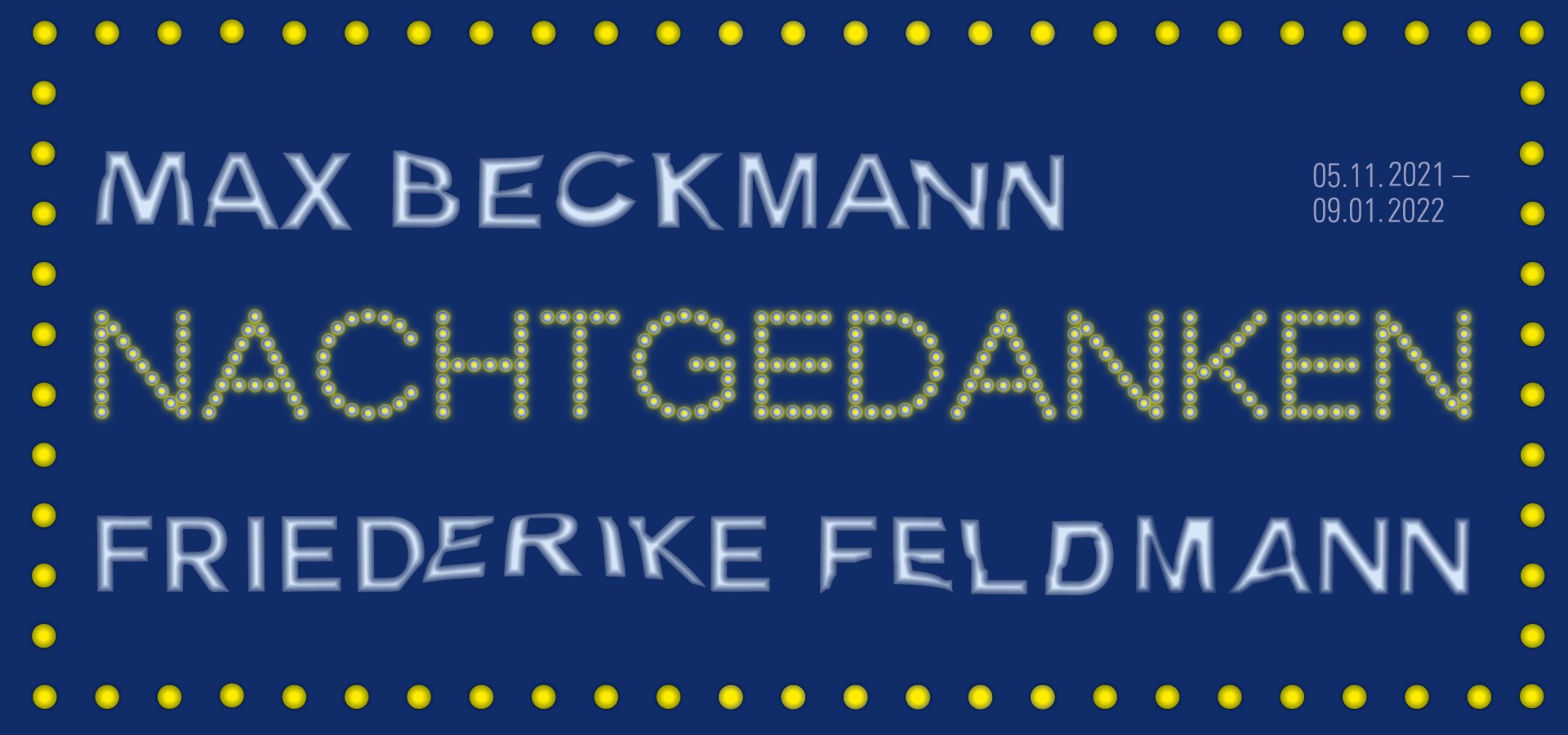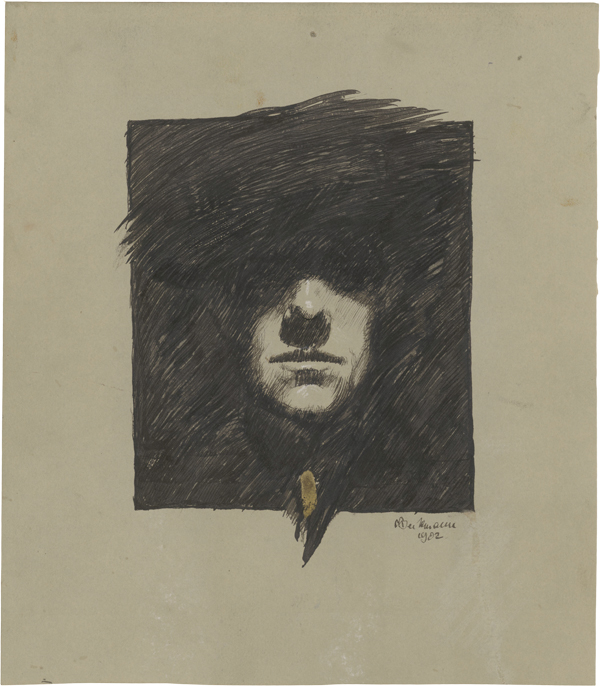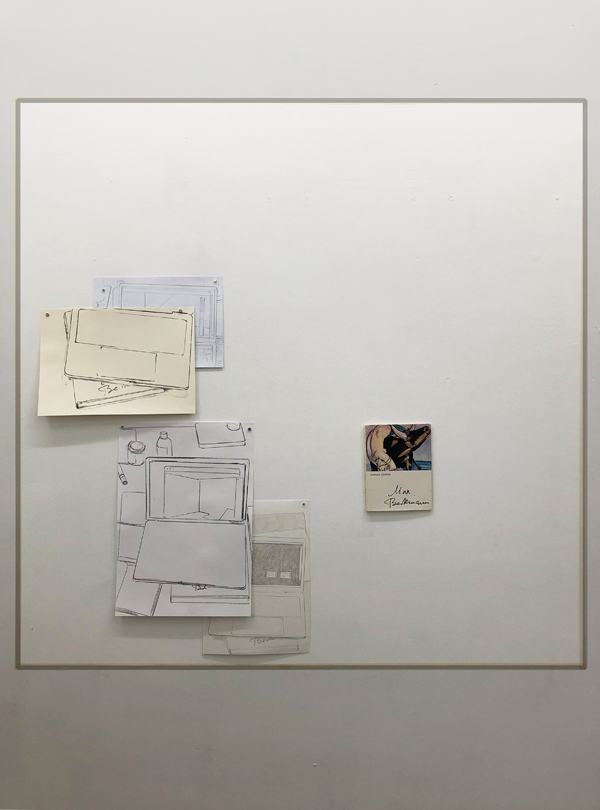The Exhibition
The exhibition Max Beckmann / Friederike Feldmann NIGHT THOUGHTS is Staatliche Graphische Sammlung München’s second project in the field of contemporary art centering on this key figure of classical modernism.
Max Beckmann’s world of images remains mysterious and virtually limitless to this day – a phenomenon contemporary artists react to with both sensitivity and curiosity. Munich is predestined as a venue for this kind of investigative research into Beckmann’s work, indeed his artistic creation features as part of extensive and key work groups in the city’s museum landscape.
Video artist Omer Fast initiated a first artistic dialogue with Beckmann’s works. Last winter 2019/20 saw him approach Beckmann’s living environment interpretively in a cinematic installation. As a starting point he chose a self-portrait by the artist from 1917, which Staatliche Graphische Sammlung München was able to acquire a few years ago with the support of the Ernst von Siemens Kunststiftung. In this ink pen drawing Beckmann presented himself in a shockingly realistic way, after suffering a mental breakdown in 1915 which led to his discharge from military service during the First World War. This drawing, examined in Fast’s artistic discourse from all sides, was all the more affirmed as an exceptional work among the artist’s drawn self-portraits since Omer Fast’s cinematic images echoed Beckmann’s abysmal realism, thus highlighting the vulnerability of the psyche as a predetermined breaking point of human existence.
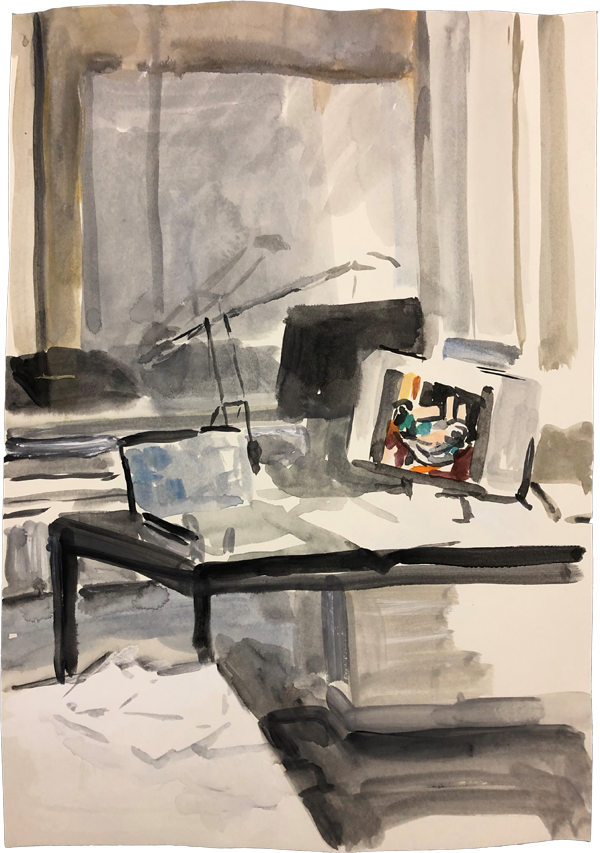
Berlin painter Friederike Feldmann now takes on the challenge of transforming her artistic view of Beckmann’s work in a room-encompassing wall-painting. She invites visitors to immerse themselves in the artist’s world, to see it in an entirely different light, interpreted in a contemporary way, to gain new and unusual perspectives on the artist’s world of motifs and to recognize how topical Beckmann’s work can be beyond art-historical classifications. An observation by seasoned painter Karl Horst Hödicke, to whom the collection dedicated a major retrospective in the summer of 2019, could programmatically speaking, also preface Feldmann’s artistic research: Hödicke noticed that Max Beckmann had been the only artist of his generation to survive the modern classical period unscathed. Meaning Beckmann’s work possesses something that contemporary artists find highly appealing, tempting them to react in counter images.
And when one has the feeling the truly free-floating “Night Thoughts” of Friederike Feldmann’s room installation become pictorial and stand out on the wall, the impression is not deceiving. A thoroughly ambivalent term is presented as the title of the exhibition – one that could be filled in many respects with emotionally charged meanings. But Feldmann does not wish to skate upon the thin ice of interpretative theories with her artistic intervention. Instead, she tries, right at the beginning of the Graphische Sammlung’s passageway display, to document an actual state of her own artistic research, focalizing the incomprehensibility of Beckmann’s cosmos.
On the one hand, she focuses on emotionally neutralizing Beckmann’s agitated and condensed pictorial worlds in the exhibition rooms creating a distance with her artistic intervention, which allows the viewers to make unusual insight-making experiences. In the passageway Friederike Feldmann browses in twelve storyboards from display case to display case through her nightly examination of the artist's life and work. Her collages made of graphic sketches, found objects and Beckmann originals from the collection are intended as snapshots. The goal is not to reach a final evaluation. Instead, the viewer is given the impression that Feldmann could immediately continue her own night thoughts, which sway between uncertainty and determination – a condition that is all too familiar from Beckmann’s collage-like pictorial worlds.
In the exhibition rooms, on the other hand, Friederike Feldmann installs two room-filling monochrome abstract wall paintings. Beckmann’s agitated pictorial worlds, usually real rollercoasters, are here traced back to the core of their essence. The painter performs an almost analytical process inviting museum visitors to experience Beckmann’s pictorial worlds as abstract painterly-seismographic records, to come closer to them in a kind of spatial experience. In the first exhibition room, the space virtually dissolves, a space behind the room becomes visible – a theme that Beckmann always formulates as claustrophobic constriction. In the second exhibition room, Feldmann disassembles Beckmann’s recurring enigmatic pictorial objects into puzzle-like pieces, into a black-colored accumulation, which challenges the eye to a varied interplay of forms beyond iconographic meaning and which moves the shape as shape to the forefront, now appearing abstract and thus immensely contemporary.
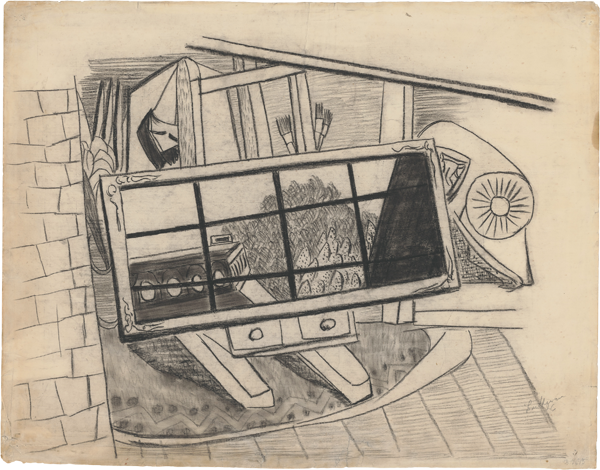
Likewise, Feldmann’s intervention does not aim to provide one-dimensional answers to Beckmann’s work. Instead, she understands her artistic contribution as an offer to trace back the basic conditions of Beckmann’s pictorial worlds as a viewer within a spatial experience. However, the starting point for her work in both rooms is just one single drawing at a time by Beckmann, selected by her from the holdings of the Graphische Sammlung, preceding her own work like a motto and moving it into focus – the inscrutable early “Self-Portrait” in ink pen from 1902 and the no less mysterious still life “Mirror on an Easel” from 1926. Both works form the key focal point of Feldmann’s impressive research.
Michael Hering.
Planning your visit
Open today till 6.00 pm
Daily 10.00 – 18.00
Thursday 10.00 – 20.00
Monday closed
Barer Straße 40
80333 München
Sunday admission 1€
Thursday – Saturday 10€
reduced 7€
Day pass (Alte Pinakothek, Pinakothek der Moderne, Museum Brandhorst, Sammlung Schack) 12€
